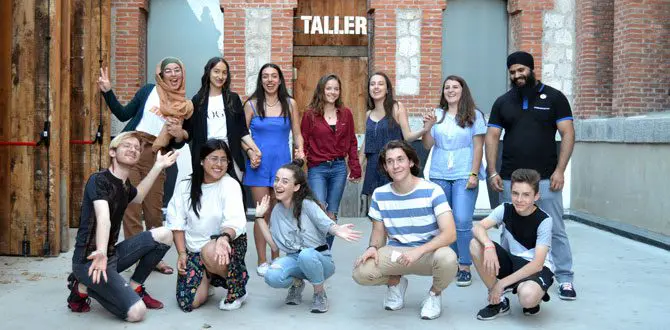Change the framework. New perspectives for an intercultural society was a project that took place between October 2018 and November 2019 that sought to use creative audiovisual practice to show religious plurality from the individual experience of youth and which in 2022 is being used in schools around Spain to promote knowledge and respect.
Why Change the framework?
Because they want to introduce new frameworks – new languages, new approaches and new experiences – to confront totalizing views on beliefs and to contribute to a greater understanding and appreciation of religious freedom within the scope of human rights.
Who are they?
The project Changing the framework. New perspectives for an intercultural society was sponsored by the Fundación «la Caixa» in the call for proposals «Interculturality and social action 2018» and implemented by the Fundación Pluralismo y Convivencia in partnership with the Fundación Jóvenes y Desarrollo and the collaboration of the filmmaker Jonás Trueba. Changing the framework also had the support of Cineteca (Matadero Madrid) for the carrying out of the work sessions.
Participants
21 young people, aged 14-21, willing to reflect together on their own experiences of living and feeling religion, who want to help build a society more respectful of human rights and who are interested in the language of film as a form of expression.
The religious affiliation and practice of the young people in the group were very diverse, as is Spanish society. Among the participants were atheists, Baha’is, Buddhists, Catholics, Scientologists, Christian Orthodox, Jews, Muslims, Protestants, Latter-Day Saints and Sikhs.







